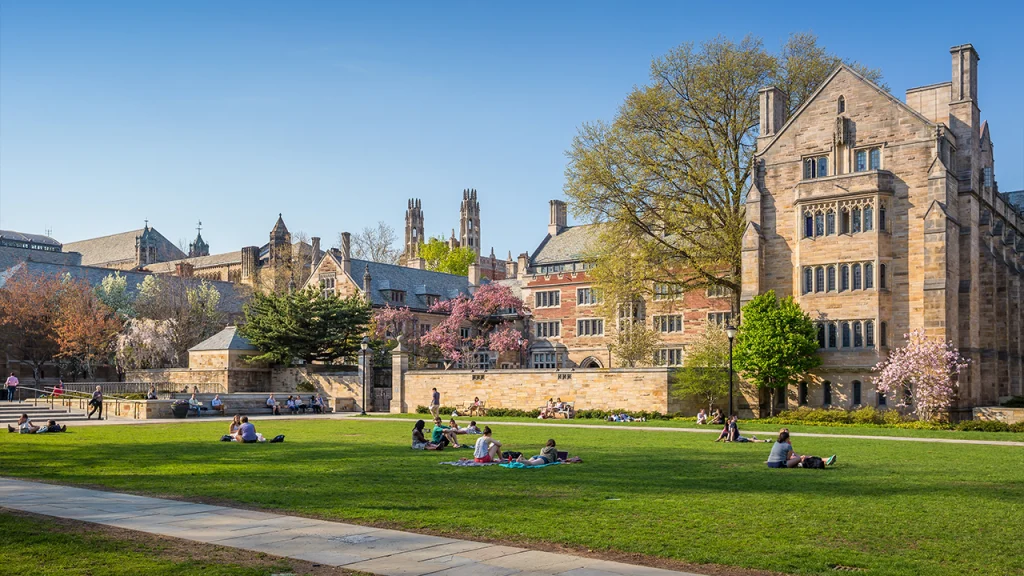Ivy League Admissions Scandal Sparks Concerns Over Academic Vetting and Security Risks
The recent expulsion of a Yale University undergraduate student has ignited fresh concerns about the vulnerability of elite academic institutions to admission fraud and potentially more serious security threats. According to reports from the Yale Daily News and Air Mail magazine, a student identified as “Katherina Lynn” was expelled after allegedly fabricating an elaborate background story to gain admission to the prestigious university.
The case represents a troubling example of how determined individuals can manipulate the admissions system at even the most selective universities in America. According to Adam Nguyen, founder of Ivy Link and former Columbia admissions adviser, the student reportedly strategically reinvented herself from a Chinese-American from California’s Bay Area into a white applicant with a “Caucasian-sounding name” from rural North Dakota. “She knew that when it comes to diversity, it’s not just about race,” Nguyen explained. “Diversity for colleges has a much broader definition. It also includes socioeconomic diversity and geographic diversity.” This calculated approach allegedly involved years of planning and document forgery before her deception was ultimately uncovered by a suspicious roommate who noticed discrepancies on her luggage tags. The incident highlights the gaps in verification systems that rely heavily on trust and limited spot-checking of applicant information.
While this specific case appears to involve personal deception rather than foreign influence, security experts point out that such vulnerabilities in academic vetting could potentially be exploited by foreign governments seeking access to American institutions and research. The State Department has warned about Chinese government efforts to use academic partnerships and exchange programs to gather sensitive research and influence American students and faculty since at least 2020. The Heritage Foundation has identified infiltration by the Chinese Communist Party as a threat across “all levels” of American education, from elementary schools to elite universities. Graduate programs may present particularly high risks, as Nguyen notes that these students often gain access to sensitive research facilities and laboratory systems where intellectual property or national security information could be compromised.
The Yale case is unfortunately not an isolated incident in the educational landscape. In Iowa, a school superintendent was recently exposed as an undocumented immigrant with a criminal record and allegedly falsified academic credentials. Despite making $270,000 annually as the head of Des Moines Public Schools, Ian Roberts’ background went undetected until recently, prompting the district to sue the consulting firm that recommended his hiring. At Lehigh University in Pennsylvania, an internal investigation launched after a student from India was exposed as an academic fraud subsequently uncovered alleged financial aid fraud involving four additional students from Ghana. These incidents demonstrate systemic weaknesses in verification procedures across educational institutions at various levels.
The Center for Immigration Studies, a Washington think tank advocating for stricter immigration controls, has urged Homeland Security Investigations to conduct broader reviews of student verification systems, warning that “if a random slacker can pull off this scam, terrorists and the Chinese government can, too.” They pointedly noted that one of the 9/11 hijackers had entered the United States on a student visa, while immigration authorities had successfully prevented five other potential conspirators from entering the country after determining their student or tourist claims were fraudulent. These historical examples underscore the potential national security implications of inadequate vetting processes at educational institutions.
Despite these concerning cases, Nguyen offers a measured perspective, noting that “there’s always going to be some successful fraudster that will make it through,” but emphasizing that “the vast majority of students are legitimate.” He also observed that if “Katherina Lynn” had directed the same level of effort toward her actual academic work rather than creating an elaborate false identity, she might well have gained admission to an elite university on her own merits. This insight highlights the irony that many fraudsters possess the intelligence and determination that could serve them well if applied honestly, raising questions about the intense pressure surrounding elite college admissions that might drive some students to take desperate measures.
The Yale admission scandal serves as a wake-up call for educational institutions to strengthen their verification processes while balancing the need for accessibility with security concerns. As universities continue to attract international students and participate in global research collaborations, the challenge of maintaining academic integrity while protecting against potential threats will require ongoing vigilance, technological solutions, and perhaps a reconsideration of the values driving the highly competitive admissions environment. Ultimately, the case demonstrates that even the most prestigious institutions remain vulnerable to determined deception, necessitating a thoughtful approach to verification that preserves educational opportunities while protecting institutional and national interests.


